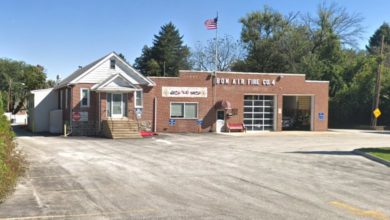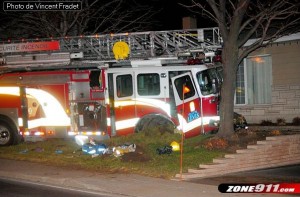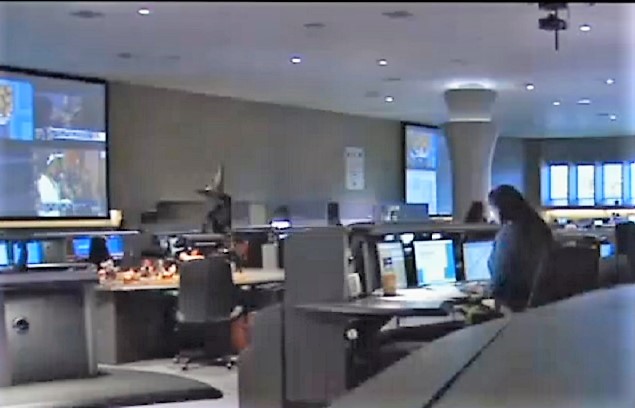Career – volunteer issues make news in New Jersey. VFC effectively closed. Read the story from Cherry Hill.
Article by Jane Roh, CourierPostOnline.com:
Conflicting accounts and murky regulations could cause a dispute between the Cherry Hill Fire Department and a volunteer house to escalate.
Chief Robert Giorgio effectively shut down Cherry Hill Volunteer Fire Company No. 1 on Beechwood Avenue last month following a number of disciplinary issues. But the firefighters, led by volunteer Chief Chris Parks, question the limits of Giorgio’s authority over them.
The volunteer company has obtained legal counsel to help them explore their options, and litigation is on the table.
“We’ve talked to (Chief Giorgio) numerous times about different issues where we feel it’s company-related versus district-related,” Parks said.
Giorgio forced three of the volunteers to resign through demotion and suspension, something Parks said he didn’t have the authority to do. According to Company No. 1’s bylaws, officers’ rankings are determined by internal election — not by the Cherry Hill Fire Department.
“He point-blank told me our bylaws were not worth the paper they were written on,” Parks said.
The conflict raises larger questions about the extent to which municipalities may govern the conduct of volunteer fire houses. Laws and regulations across the country are a veritable patchwork. In New Jersey, fire protection services are overseen by the Department of Community Affairs.
“It is a municipality and/or fire district that sanctions a fire department and establishes policy and procedures for the department,” said spokeswoman Lisa Ryan in a written statement. “In addition, a municipality typically drafts an ordinance(s) establishing a fire department. This applies to career, volunteer or combination career-volunteer fire departments.”

The 1993 ordinance that established Cherry Hill’s unified fire district decrees that “the volunteer fire fighting system needs to be preserved.” But the fire chief and Board of Fire Commissioners have rule-making authority, which includes jurisdiction of fire safety services in the township.
That means the volunteers not recognized by the Fire Department may no longer respond to calls.
“They’re either operationally qualified or not,” said Giorgio. “They could maintain their company. They could vote Chris Parks in as chief every year. But they have no operational or fire scene responsibility or authority. If they responded (to a call) there would most likely be criminal charges filed.”
Parks and the 15 or so volunteers willing to stick out this period are determined to keep going as a volunteer house. Company No. 1 already has an agreement to respond to some calls with the Haddonfield Fire Company, and the house may reach out to other small fire companies for more partnership opportunities, Parks said.
The company also is appealing to Mayor Bernie Platt and township council in an effort to drum up public support.
But their right to operate is still in question without Cherry Hill’s approval.
“Generally what you have are a lot of private, not-for-profit volunteer departments. And they generally operate based on a written agreement with a local unit of government,” said Dave Finger of the National Volunteer Fire Council, a Washington-based lobbying group. “So if a local unit of government doesn’t want them operating anymore, I’m not sure what justification they would have to be responding to calls.”
For now, the township’s government is holding off on taking sides.
“The mayor has been ensured that the public’s health and welfare will not be affected by any changes being sought on Beechwood Avenue,” said township spokesman Dan Keashen. “Going forward the mayor will be keeping an open dialogue with Chief Giorgio and monitoring the situation in the Woodland neighborhood.”
According to Giorgio, Company No. 1’s performance had been on a downhill slide for about five years — something he directly attributed to Parks’ leadership. He cited a number of incidents that caused him concern. During the 2007 fire that destroyed a mansion on Springdale Road, a junior volunteer firefighter on location was outfitted with an air pack.
Junior firefighters, or those under 18, are prohibited from entering buildings on fire or wearing air packs.
Giorgio said he was also not properly notified when Company No. 1 took its fire trucks out of town for parades and other events. He said he found out about a traffic accident one of the trucks was involved in from the police, not the volunteers involved.
Parks said the volunteers aren’t required to inform the department of their whereabouts when in uniform, even though the department pays for the trucks’ insurance.
The final straw, according to Giorgio, was the construction of a pool behind the fire house last summer. According to witnesses several volunteer firefighters hosted teenage girls and provided alcohol at the house and the above-ground pool. A police report was filed last June, but charges were not pursued. Parks doesn’t dispute that such incidents occurred.
“That’s something that’s not permitted here,” Parks said of alcohol consumption in the house. “I’m not going to tell you we don’t do it. We have done it in the past.”

He said the volunteers consumed beer and wine after work sessions and on special occasions but that in his presence it was never in excess.
Three volunteer firefighters including John Holmes, whom Giorgio disciplined for allowing subordinates to hang out at the house after hours, and two junior firefighters have been invited by the department to stay on. They have been relocated to the fire house at Route 38 and Church Road, where they will be trained alongside paid firefighters.
Willingboro Fire Chief Anthony Burnett credits integrated stations for the good relationship his department enjoys with volunteers.
“We’re one fire department — it’s just that we’re a combination department,” he said. “Everyone has to meet the same standards so they’re all professionals. There’s a code of conduct and discipline book and they follow the same program.”
Parks denied that the volunteers had let training and responsiveness slide, as Giorgio claimed. He also said he suspected Firefighters Local 2663 and Fire Officers Local 3198 were behind the push to eliminate the volunteers.
“Unions have a propriety interest in forcing volunteers out, and often there is negative publicity regarding volunteers,” said Finger, referring to popular portrayals of volunteers as overgrown boys driven by a desire to impress women. “The truth is, the services they provide save taxpayers about $40 billion every year. A lot of communities simply wouldn’t be able to afford fire protection if they had to pay salaries and benefits to all firefighters.”
Finger said that in many communities volunteers and career firefighters are on the same training regimen. Parks said the volunteers’ training schedule had been strenuous and that they took exercises seriously.
Kenneth B. Perkins, an anthropologist at Longwood University in Virginia, has studied volunteer firefighters. He said that relations with volunteer firehouses sour for a variety of reasons, and that Parks’ and Giorgio’s versions of events were equally plausible.
“This could be a local union fueling this, or you could have a bunch of slobs that are a legal liability to the municipality,” Perkins said. “That these volunteers would want to fight to the death to remain does not surprise me. It means a whole lot more to them than just a workplace or place for leisure activities.”
In fact, volunteer firefighting is a tradition that dates back to the nation’s founding.
Benjamin Franklin formed America’s first volunteer unit, the Union Fire Company in Philadelphia, in 1736. Franklin was the nation’s first volunteer fire chief.
If Giorgio’s end game really is to get rid of volunteer firefighters altogether, as Parks claims, Perkins said he can’t imagine a good justification.







